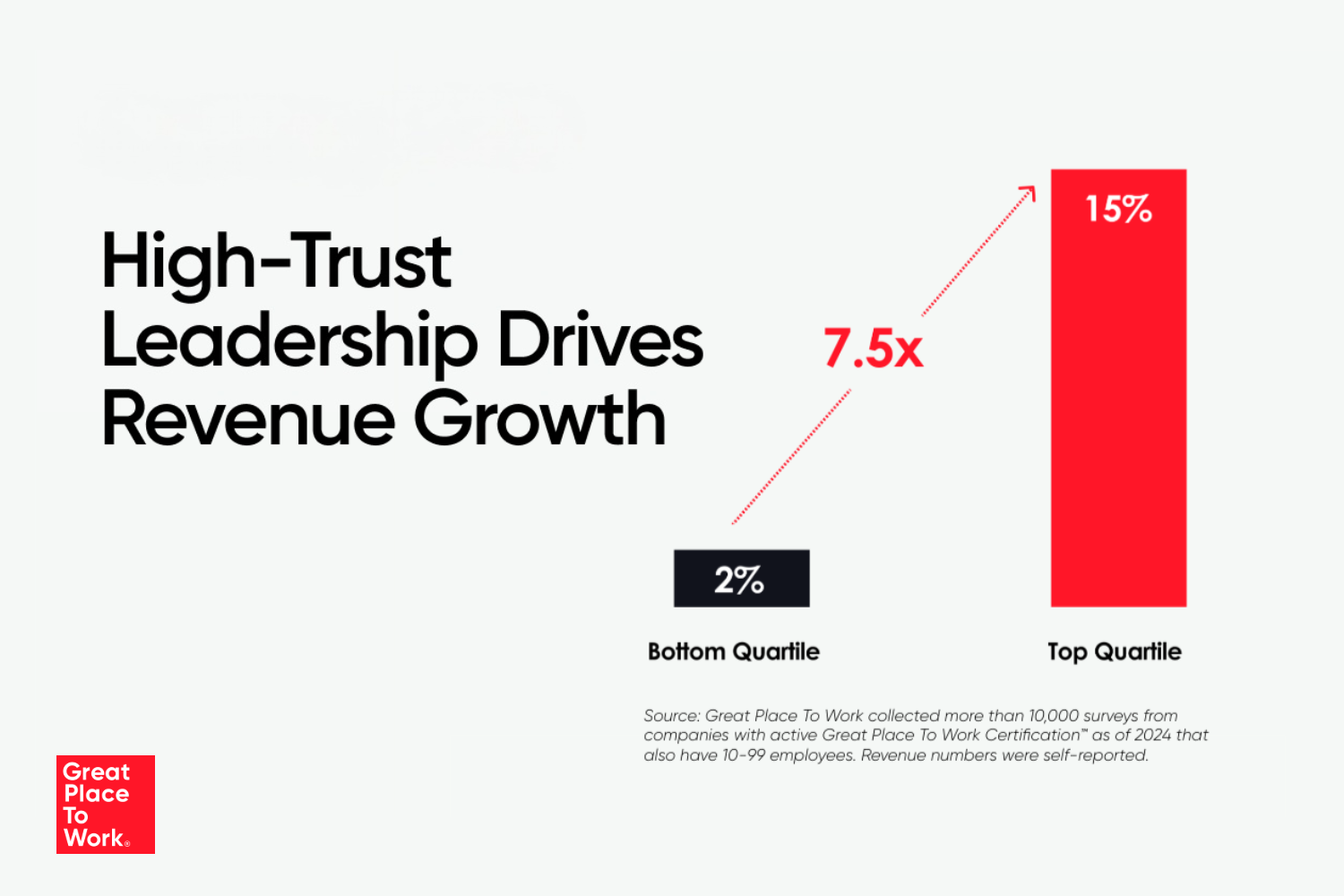One of the biggest differences between companies who were named to the FORTUNE 100 Best Companies to Work For list this year and the list contenders were their results for thisTrust Index® Employee Survey statement: “Management shows a sincere interest in me as a person, not just an employee.” On average, at recognized Best Companies, 83% of employees believe this statement to be true, as opposed to just 73% of contenders (who all, incidentally, tend to be very good companies to work for!).
Moreover, within the 100 Best Companies to Work For, an average of 83% of employees also believe they are encouraged to balance their work life and their personal life, and a whopping 91% of employees believe management allows them to take time off from work when they need to.
These numbers are impressive, and demonstrate that even in the face of zero paid vacation or holiday hours required for employees in the U.S., some organizations are taking it upon themselves to ensure employees have meaningful time off from work. Through their policies and practices, these organizations support employees as they strive to achieve a healthy balance between work life and personal life.

Workplaces that opt to care for their employees as people who have lives outside of work are providing solutions that help people manage both worlds, with ample opportunities for time off and flexible scheduling. Consider these statistics. Of the 2014 FORTUNE 100 Best Companies:
- 85% offer telecommuting options
- 82% offer over 20 days PTO after one year of employment
- 80% offer flexible schedules
- 78% offer a compressed workweek
- 72% offer sabbaticals
Some of the creative practices we’ve seen at this year’s 100 Best Companies include:
At Darden Restaurants, based in Miami, Florida, corporate employees have core hours from 9:00-3:30, but are given flexibility on arrival and departure times so they can manage their commutes and home obligations.
At Cisco, a Silicon-Valley based technology company, employees can opt for a “Ramp Up/Ramp Off” period to take 1-2 years off of work for a reason of their choosing.
Baptist Health South Florida created the “Centralized Staffing Center,” where nurses with a minimum of two years of experience are invited to work at the facilities of their choosing while helping the organization fill short-staffed areas and maintaining patient quality and safety standards.
Especially as expectations about work/life balance and modern family dynamics evolve, practices like these will become more normal as we look at the workplace of the future. And, as these options are more ubiquitous, they will increasingly become key factors for top talent as they consider where, when, and how they would like to work.








